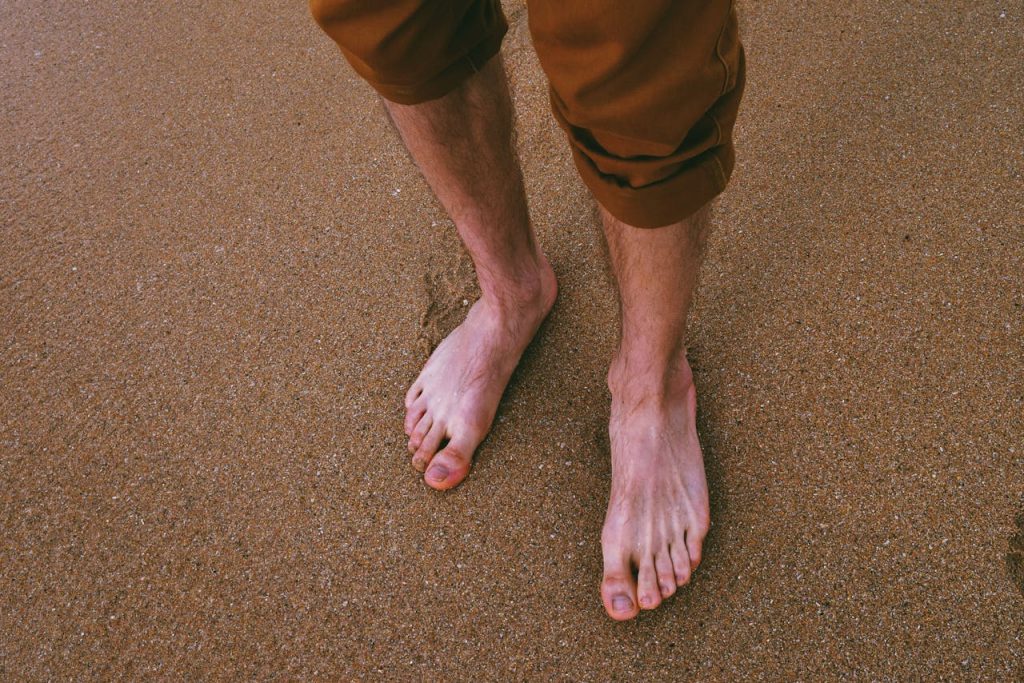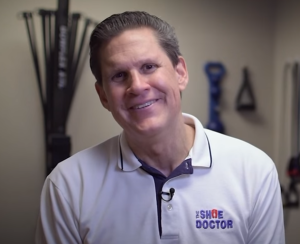Key Takeaways
Understanding Orthotics: Orthotics are devices designed to be placed inside shoes to improve foot function, correct imbalances, and distribute pressure evenly. They are categorized mainly into custom-made and over-the-counter (OTC) types.
Types of Orthotics: Orthotics come in various forms, including rigid, soft, semi-rigid orthotics, heel cups, and arch supports, each tailored to address specific foot conditions and needs.
Importance for Chronic Foot Pain: Orthotics are crucial for managing chronic foot pain, providing necessary support, improving alignment, and distributing weight evenly, which can prevent further discomfort and secondary injuries.
Conditions Addressed: Specific foot-related conditions such as plantar fasciitis, flat feet, bunions, hammertoes, and arthritis can significantly benefit from the appropriate use of orthotics.
Custom vs. Over-The-Counter Orthotics: Custom orthotics offer a personalized fit and targeted relief, tailored to individual foot structures and specific conditions, while OTC orthotics provide a general solution that is more accessible and affordable.
Choosing the Right Orthotics: Factors to consider when selecting orthotics include foot structure, type of activity, compatibility with footwear, weight distribution, and the material and durability of the orthotics.
Popular Brands: Brands like Superfeet, Dr. Scholl’s, PowerStep, and Spenco offer various orthotic solutions targeting different needs and conditions, known for their effectiveness in providing relief and support.
Combination with Other Treatments: For comprehensive management of foot pain, orthotics can be combined with other therapies such as physical therapy, medications, or even surgery, depending on the severity of the condition.
Availability and Accessibility: While custom orthotics require a podiatric consultation and are more expensive, OTC orthotics are widely available in stores and online, offering immediate relief for many common foot pain issues.
Conclusion and Call to Action: The article concludes by emphasizing the effectiveness of custom orthotics from The Shoe Doctor for those suffering from chronic foot pain, encouraging readers to schedule a consultation to address their specific needs comprehensively.
Chronic foot pain can be debilitating, affecting your quality of life and making everyday tasks like walking or standing a challenge. This type of discomfort can be caused by various conditions, including plantar fasciitis, arthritis, flat feet, or even injuries that lead to long-term inflammation and damage. One of the most effective ways to address chronic foot pain is by using orthotics, which are custom or over-the-counter shoe inserts designed to support, cushion, and realign the foot. However, with so many options available, choosing the right orthotics can be overwhelming. This guide explores the types of orthotics, factors to consider when selecting a pair, and how they can help alleviate foot pain.
Understanding Orthotics
Orthotics are specialized devices placed inside your shoes to improve foot function, distribute pressure evenly, and correct imbalances. There are two primary types: custom-made orthotics, which are designed specifically for an individual’s foot, and over-the-counter (OTC) orthotics, which offer more general support.
Types of Orthotics
- Rigid Orthotics: Also known as functional orthotics, rigid orthotics are typically made from firm materials like plastic or carbon fiber. These inserts focus on controlling motion in the joints of the foot and ankle. Rigid orthotics are ideal for individuals with foot pain due to abnormal motion, such as those suffering from overpronation (when the foot rolls inward excessively).
- Soft Orthotics: Also called accommodative orthotics, soft orthotics are crafted from softer, more flexible materials like foam, gel, or silicone. They cushion the feet, absorbing shock and distributing pressure across the entire foot. These are often recommended for individuals with diabetes, arthritis, or significant foot deformities that need extra cushioning.
- Semi-Rigid Orthotics: These are a blend of rigid and soft orthotics, providing both control and cushioning. Semi-rigid orthotics are often used by athletes or people with active lifestyles who need foot support but also flexibility for dynamic movement.
- Heel Cups: These orthotics are specifically designed for individuals suffering from heel pain, such as those with plantar fasciitis or Achilles tendonitis. Heel cups cushion the heel and help to redistribute pressure away from painful areas.
- Arch Supports: If your chronic foot pain stems from having flat feet or fallen arches, arch supports can help by raising the arch and providing stability. These are often included in both custom and over-the-counter orthotics.
The Importance of Orthotics for Chronic Foot Pain
Foot pain can arise from various conditions, and using the right orthotics can significantly reduce discomfort by offering structural support, improving alignment, and distributing weight more evenly across the foot. Orthotics not only address foot pain but can also prevent it from radiating to other areas of the body, such as the knees, hips, or lower back. Below are some common causes of chronic foot pain and how orthotics can help:
Plantar Fasciitis
Plantar fasciitis is one of the most common causes of heel pain. It occurs when the thick band of tissue running along the bottom of your foot (the plantar fascia) becomes inflamed. Orthotics designed for plantar fasciitis typically feature extra cushioning in the heel area and support for the arch to reduce strain on the plantar fascia. Over-the-counter orthotics like heel cups or custom-made inserts tailored for your foot’s shape can offer substantial relief.
Flat Feet
Flat feet, or fallen arches, occur when the arches of the feet collapse, causing the entire foot to come into contact with the ground. This can lead to overpronation and result in chronic pain in the feet, ankles, and knees. Orthotics that support the arch can help realign the foot and distribute pressure more evenly. Custom orthotics for flat feet are often recommended for severe cases, as they can be specifically designed to accommodate the individual’s unique foot structure.
Bunions and Hammertoes
Bunions and hammertoes are common foot deformities that can cause pain in the toes and forefoot. Orthotics for these conditions typically feature soft padding to reduce pressure on the affected areas and help redistribute weight to avoid aggravating the deformity.
Arthritis
For individuals with arthritis in the feet, orthotics can provide the cushioning and support needed to reduce pain in the joints. Soft, accommodative orthotics are typically the best option for people with arthritis, as they help cushion the foot and relieve pressure on inflamed joints.

Custom vs. Over-the-Counter Orthotics: Which Is Best?
When choosing orthotics for chronic foot pain, one of the first decisions you’ll need to make is whether to opt for custom-made orthotics or over-the-counter (OTC) options. Both types have their advantages and disadvantages, and the right choice will depend on the nature of your foot pain, your activity level, and your budget.
Custom Orthotics
Custom orthotics are designed specifically for your foot. A podiatrist or orthopedic specialist will evaluate your foot structure, gait, and posture to create an orthotic that fits your foot perfectly. These orthotics are usually made from higher-quality materials and can provide more precise support than OTC versions.
Advantages of Custom Orthotics:
- Personalized Fit: Custom orthotics are tailored to your specific foot shape and condition, ensuring that you get the exact support you need.
- Durability: Because they are made from high-quality materials, custom orthotics tend to last longer than their OTC counterparts.
- Targeted Relief: Custom orthotics can be adjusted to provide relief for specific conditions like plantar fasciitis, flat feet, or arthritis.
Disadvantages of Custom Orthotics:
- Cost: Custom orthotics are significantly more expensive than OTC options. Prices can range from $200 to $800, depending on the materials used and the complexity of the design.
- Time-Consuming: The process of getting custom orthotics can take several weeks, as it involves consultations, foot assessments, and manufacturing time.
Over-the-Counter Orthotics
Over-the-counter orthotics are available at most drugstores and online retailers. They offer more general support and are available in various sizes to fit different foot shapes. While they may not provide the same level of customization as custom orthotics, OTC options can still offer significant relief for many people.
Advantages of Over-the-Counter Orthotics:
- Affordability: OTC orthotics are much cheaper than custom-made ones, typically ranging from $20 to $100.
- Convenience: OTC orthotics are readily available and can be used immediately, without the need for consultations or fittings.
- Variety: There are numerous types of OTC orthotics available, designed for different conditions and levels of support. This makes it easy to find an option that works for your specific foot pain.
Disadvantages of Over-the-Counter Orthotics:
- Generic Fit: OTC orthotics are not customized to your foot, so they may not provide the same level of support as custom versions.
- Less Durability: Many OTC orthotics are made from less durable materials, meaning they may need to be replaced more frequently than custom orthotics.
Key Factors to Consider When Choosing Orthotics
Choosing the right orthotics for chronic foot pain involves more than just deciding between custom and OTC options. There are several factors you should consider to ensure that the orthotics you choose provide optimal relief.
Foot Structure
Your foot structure plays a significant role in determining the type of orthotic you need. For example, if you have flat feet, you’ll need an orthotic with strong arch support. On the other hand, if you have high arches, you’ll want an orthotic with cushioning to absorb shock and reduce pressure on the ball and heel of your foot.
Type of Activity
The type of activity you engage in regularly can also influence your choice of orthotics. If you’re an athlete or someone who spends a lot of time on your feet, you’ll need orthotics that provide stability, cushioning, and flexibility. Rigid orthotics may not be the best choice for high-impact activities, as they can limit your foot’s range of motion. Semi-rigid orthotics, which offer both support and flexibility, are often a better option for active individuals.
Footwear Compatibility
It’s essential to ensure that your orthotics will fit comfortably in your shoes. Some orthotics are bulky and may not fit in certain types of footwear, such as dress shoes or sandals. When selecting orthotics, make sure to choose a pair that will work with the shoes you wear most often.
Weight Distribution
Proper weight distribution is crucial for alleviating chronic foot pain. Orthotics should help distribute your body weight evenly across your feet to reduce pressure on specific areas. For example, if you suffer from heel pain, you’ll want orthotics that redistribute weight away from the heel and onto the forefoot.
Material and Durability
The materials used in orthotics can affect both their comfort and longevity. Soft materials like foam and gel offer cushioning but may wear out more quickly, while firmer materials like plastic or carbon fiber provide more support and durability. If you need orthotics for everyday wear, it’s important to choose a pair made from high-quality materials that will stand the test of time.
Popular Brands of Orthotics
Several well-known brands specialize in orthotics for chronic foot pain. While custom orthotics are often made by medical professionals, many OTC brands offer effective solutions for a variety of foot conditions.
Superfeet
Superfeet is one of the most popular brands of OTC orthotics, offering a wide range of options for different types of foot pain and activities. Their products are known for their durability and support, particularly for individuals with flat feet or high arches.
Dr. Scholl’s
Dr. Scholl’s is a well-known brand that offers a variety of affordable OTC orthotics designed to address common foot issues like plantar fasciitis, arch pain, and general foot fatigue. While they may not provide the same level of customization as other brands, Dr. Scholl’s products are widely accessible and can offer immediate relief.
PowerStep
PowerStep orthotics are known for their cushioning and support, making them a good option for individuals with conditions like plantar fasciitis or metatarsalgia. They offer a range of products, from full-length inserts to smaller heel cups and arch supports.
Spenco
Spenco orthotics focus on cushioning and shock absorption, making them ideal for people who suffer from conditions like arthritis or heel spurs. Their orthotics are often made from soft materials like foam or gel, offering a high level of comfort for individuals with sensitive feet.
Conclusion
Choosing the right orthotics for chronic foot pain requires careful consideration of your foot structure, activity level, and the specific condition causing your discomfort. Whether you opt for custom-made orthotics tailored to your exact needs or more affordable over-the-counter options, the right pair can significantly improve your quality of life by providing the support, cushioning, and alignment your feet need. By taking into account factors like foot structure, weight distribution, material durability, and footwear compatibility, you can make an informed decision that helps alleviate chronic foot pain and keeps you on your feet.
Find Relief from Chronic Foot Pain with Custom Orthotics from The Shoe Doctor!
If you’re struggling with chronic foot pain that disrupts your daily life, custom orthotics could be the key to restoring your comfort and mobility. Designed specifically to address the unique structure of your feet, custom orthotics provide targeted support to alleviate pain, enhance posture, and improve overall foot health. By addressing the root causes of your discomfort, these orthotics can help you regain the freedom to move without pain while improving your long-term well-being.
At The Shoe Doctor, we bring over 20 years of expertise in creating high-quality, custom orthotics to relieve chronic foot pain. Our specialist, Russell, uses cutting-edge 3D foot mapping and state-of-the-art technology to craft orthotics that perfectly fit your feet. Partnering with the Spine & Injury Medical Center in San Jose, we take a comprehensive, holistic approach to treating foot pain and related mobility issues. If you’re in the South San Francisco Bay Area, The Shoe Doctor is your trusted source for effective, personalized orthotics. Schedule your complimentary consultation today and take the first step toward a pain-free life!
Disclaimer
The materials available on this website are for informational and entertainment purposes only and not to provide medical advice. You should contact your doctor to obtain advice concerning any particular issue or problem. You should not act or refrain from acting based on any content included in this site without seeking medical or other professional advice. The information presented on this website may not reflect the most current medical developments. No action should be taken in reliance on the information contained on this website and we disclaim all liability for actions taken or not taken based on any or all of the contents of this site to the fullest extent permitted by law.


